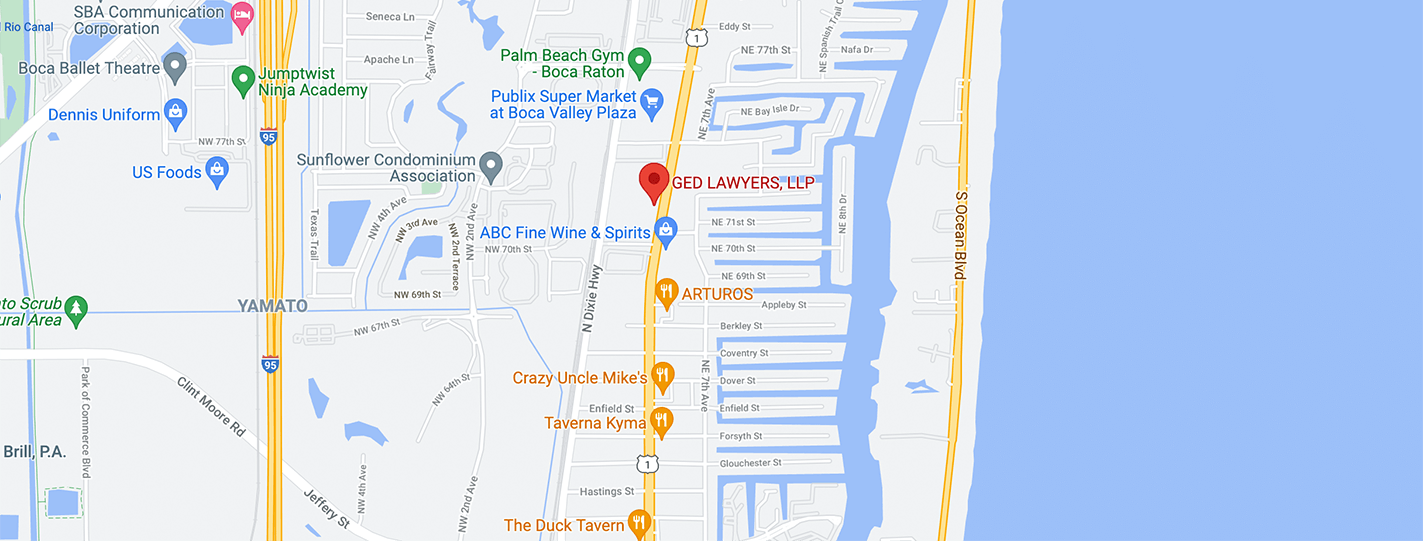
In Florida, wrongful death settlement amounts differ so widely that it’s impossible to suggest what the average paid out to families may be. However, if your loved one died due to another’s negligence, wrongful act, or certain other actions, you have the right under Florida Statutes § 768.19 to pursue a wrongful death lawsuit.
Such lawsuits are complicated and can be time-consuming. Speaking with a skilled Florida wrongful death lawyer in representing wrongful death claims may save you time, and help you determine the best legal option for your case.
What Factors Affect the Amount of a Wrongful Death Settlement?
When a wrongful death settlement is being valued, multiple aspects of the incident are reviewed to reach a final number—to say how much that life was worth. None of us like the stark reality of dollar amounts being tossed around, but that is essentially what happens. According to Florida Statutes § 768.21, some of the factors considered are:
Losses Suffered by the Decedent or Their Loved Ones
- Pain and suffering experienced by the decedent prior to their death
- Mental anguish and trauma of the survivors caused by their loved one’s death
- Medical expenses of the decedent generated prior to death, such as ambulance, hospital costs, or surgery
- Survivors’ financial losses due to decedent’s death, loss of companionship, guidance, and loss of consortium
- Funeral expenses and burial costs
Decedent’s Personal History
- The decedent’s age may affect your claim if your loved one was young and healthy at the time of death, and you will suffer with the loss of companionship, many years of love, and support
- Your loved one’s health prior to the incident that took their life might affect the final decision
- Your loved one’s education and income level may dictate their future earning power
The circumstances surrounding your loved one’s death may also impact your wrongful death settlement if the actions on the part of the at-fault party were egregious.
Although Florida does not put a cap on wrongful death settlements, you may find there is a limit if the negligence is covered by the at-fault party’s insurance company. Most companies have insurance policy limits restricting how much they will pay out. Your wrongful death attorney will help break that down for you and discuss your options in such a case.
we are here for our clients and their legal needs, with proficiency in a broad range of fields. GET A FREE CONSULTATION
Who is Responsible for Filing a Wrongful Death Lawsuit?
The personal representative of the decedent’s estate files the wrongful death lawsuit on behalf of the survivors and the estate. This representative is usually named in the will. If there is no will, the court will decide who can fill that position.
Eligible Beneficiaries of the Lawsuit or Settlement
Typically, close family members including the decedent’s spouse, biological children, and parents can recover a wrongful death settlement. Other family members, such as blood or adoptive relatives who were dependent on your loved one at the time of death, and the estate itself may also be potential beneficiaries. An attorney experienced in wrongful death claims will help you to identify who the beneficiaries may be in your case.
Proving Negligence in a Wrongful Death Case
Negligence often plays a large part in determining if you have a wrongful death claim. As the plaintiff, you must prove that the at-fault party was negligent. To do so, the following elements must be proven:
- The at-fault party had a duty of care toward your loved one to act as a reasonable person would in the same circumstances in order to prevent harm
- The at-fault party breached that duty of care by acting or not acting in a way so as to cause harm if a reasonably prudent person would have recognized the risk of harm in the same circumstances and would have acted differently from the at-fault party
- The at-fault party’s negligent act caused the death of your loved one
- You and your family suffered loss due to your loved one’s death
To proceed with a wrongful death claim you must also prove that your loved one would have had the right to bring a personal injury claim against the at-fault party, had they survived.
with compassionate advice and professional assistance. CALL US TODAY
Differences Between a Negotiated Settlement and a Trial Verdict in a Wrongful Death Claim
As you enter the legal process of pursuing a wrongful death claim, it is worth keeping in mind the differences between settling and going to trial. A negotiated settlement is usually faster, and you may have more control over the result, although if the negotiations are not performed in good faith, you may lose that control and be forced into a trial.
Trials are more expensive than negotiations, as there are legal costs to prepare for and go through a trial. Both sides have their say in court, but the decision is made by a judge or jury and can result in a verdict that offers much higher (or lower) financial compensation than expected.
We look forward to hearing from you and helping you with your legal needs. CALL FOR A FREE EVALUATION
What Happens After a Wrongful Death Claim is Settled?
The personal representative brings the wrongful death action and is responsible for the disbursement of the funds once a settlement or verdict is reached. The funds are usually divided equally among the beneficiaries if the adult beneficiaries agree. If not, the court may recommend or decide how much each beneficiary should receive.
Statute of Limitations for Filing a Wrongful Death Lawsuit in Florida
Florida allows you two years from the date of your loved one’s passing to file a wrongful death lawsuit. There are exceptions to this timeframe for legal action that are dependent on the circumstances surrounding your loved one’s death. Your wrongful death lawyer will provide specific dates based on your case.
Get Help from Our Wrongful Death Lawyers with Your Case Today
Ged Lawyers is a law firm with a history of winning. Our wrongful death lawyers and staff have decades of experience providing legal representation to families going through the hardest time of their lives. We take on the legal burdens of fighting for a full and fair wrongful death lawsuit settlement so that you and your family may have the time to properly grieve.
Contact us for a free initial consultation. Let our compassionate and caring team help you through this difficult time.
